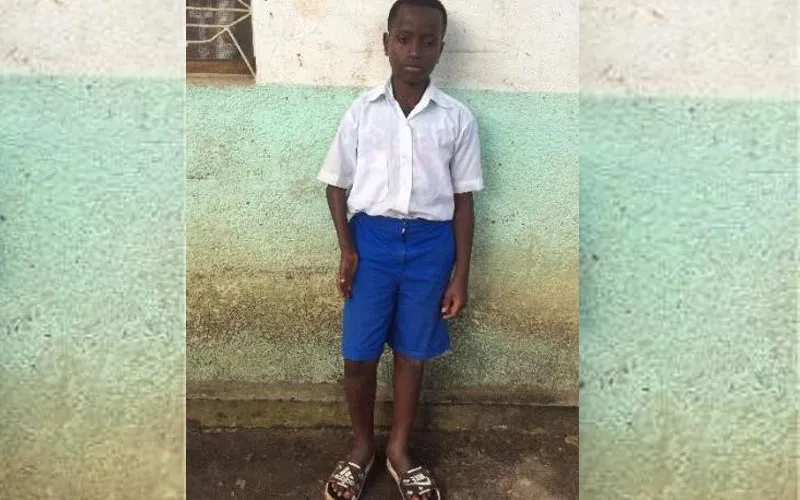“They can write and they will become important people in the future. I really enjoy seeing my children go to school,” Lydie recounts in reference to her children who are attending Ephphatha boarding school.
Another family that has benefitted from JRS education support is that of Julie, a Congolese refugee, a mother of five children, among them two girls with some cognitive challenges.
Having arrived in Burundi in 2013 when expectant, Julie says she “had a lot of difficulties and despair.”
“JRS directly supported me in my search for an educational center specialized in the disability of my daughters and that’s how my children were enrolled in the Akamuri Centre,” Julie says in the March 1 report.
She adds, “My two daughters are teenagers now and, despite their disability, they attend school. If they were out of school and regardless of their condition, they would probably be exposed to rape and other types of physical or sexual harassment.”
(Story continues below)
In the report, Julie echoes Lydie’s sentiments about the right to education saying, “Disabled children are just like other children and have the same rights to education, life, and health.”
Meanwhile, the sentiments of the two Congolese refugee women are echoed by Noël Ntungwanayo, the Director of the Ephphatha boarding school who says that pupils with different abilities ought to be allowed to access education opportunities just like their counterparts with no health challenges.
To Mr. Ntungwanayo, education will not only enable the children with special needs have access to better opportunities in life, but it will also enable them “begin to understand the world as they start communicating.”
He decries the lack of suitable schools for pupils with special needs, a challenge he says is the “main difficulty” for families with such children.
At his school, Mr. Ntungwanayo says that out of the more than 120 students in both boarding and day sections, “Most of them come from vulnerable families and some cannot afford to pay school fees.”
“I would like to thank all those who support these refugee students and other vulnerable Burundians with school fees and other materials,” the Director of Ephphatha boarding school has been quoted as saying in the March 1 report by JRS.
He adds, “I make a heartfelt appeal to other benefactors to follow such lead and help these children.”
Founded in November 1980 by Jesuit Fr. Andrew Arrupe, the mission of JRS is “to accompany, serve, and advocate on behalf of refugees and other forcibly displaced persons, that they may heal, learn, and determine their own future.”
ACI Africa adapted this story from the March 1 report by JRS Great Lakes.








